
I woke up this morning fully intending to dig through my embarrassingly tall stack of readers’ questions so trenchant that they deserve a post of their very own and find a topic du jour, honest. I genuinely am looking forward to plowing through ‘em all, possibly followed by a nice, leisurely stroll through common red flags that tend to traject submissions into the reject pile faster than a writer new to the process can say, “But I didn’t know that there WAS a standard format for manuscripts, or that a manuscript page wasn’t supposed to look just like the same page in a published book!” (If that last sentence didn’t make you smirk knowingly, you might want to check out the HOW TO FORMAT A MANUSCRIPT category at on the archive list at the lower right-hand side of this page before you proceed much farther in your writing career.)
And then I happened to glance at the calendar. It’s a week and a half until Thanksgiving — or, as those of us who deal on a regular basis with the publishing industry like to call it, the annual slow-down.
Before I depress you all by explaining why anyone would call it that, let’s be proactive: I would like to take the opportunity to urge those of you who have owed requested materials to an agent for a full season — from, say, having pitched successfully at a summer conference or received a positive response to a query prior to the annual August holidays — to send it out, already.
As in, if humanly possible, within the next week and a half.
Did that request make panic-generated fireworks go off in some writerly heads out there? I shouldn’t wonder; the last time I checked, over 70% of requested manuscripts were never actually sent to the agents and editors that requested them.
Yes, you read that correctly — the vast majority never turn up on Millicent’s desktop. That’s a whole lot of potentially publishable writing sitting in a whole lot of desk drawers. Let’s give some thought to why that might be the norm.
Consider, if you will, Zack, a good-but-as-yet-unagented novelist. Zack has been looking for an agent for quite some time now for a well-written, complex book — the kind of book that folks in the industry like to describe, if they’re feeling charitable, as “needing precisely the right agent/editor/push campaign.” (If they’re not feeling charitable, they describe it as “good, but difficult to place.”)
In short, Zack’s novel is original, and the perfect agent has yet to fall in love with it.
We’ve all been there, right? If I haven’t said it again recently, allow me to remind you that the time elapsed between when a writer begins to seek an agent for a particular project and when she finally signs with one is NOT necessarily an especially reliable predictor of the writer’s talent — or of how likely a book is to appeal to readers.
In fact, it usually isn’t predictive of anything at all: if the writing quality were the only factor involved, we wouldn’t ever see a bad book on the tables at the front of a chain bookstore, would we?
But try convincing a well-meaning friend or relative — the kind that might lecture one over turkey at a certain annual family gathering about the desirability of dropping a time-consuming hobby that has not yet yielded fortune or fame — that even the best books often take time to find the right home, eh? Non-writers tend to assume that talent is the ONLY factor, but then, the non-writing world lives under the happy delusion that the only reason a book would not get published right away is that it isn’t any good!
Long-time readers, chant it with me now: plenty of good writers have queried for years before getting picked up, and frankly, it’s harder to land an agent today than it was even two years ago, due to the slow economy. Let alone the ten or fifteen that may have elapsed since that established author whose interview you just read landed hers in — how many tries did she mention? Two? Three?
Okay, pep talk administered. Back to our saga already in progress.
Like a sensible writer, Zack knows that his book’s only chance of getting published lies in his promoting it to agents and editors, so he routinely spends the spring and summer going around to literary conferences, and the autumn to sending out queries. Since he both has an interesting story to tell and is a talented pitcher/querier, he always picks up a few requests to see all or part of the book.
Yet invariably, when I see him at holiday parties, he responds uncomfortably to my eager inquires about how agents have responded to his submissions. “I’m still revising the end of the book,” he says, eyes averted.
We have this exchange down to a ritual now. I this is my cue to ask, “Does that mean that you haven’t sent out the first 50 to the agents who asked you for it, either?”
Zack looks sheepish, self-righteous, and fearful all at once, a facial feat I would have sworn was not possible. “I want to be completely ready when they ask to see the rest.”
Readers, care to know how often you are on my mind? Exactly three seconds before I start to read him my annual riot act on the virtues of SIOA (Send It Out, Already!), I routinely think, “Gee, how long has it been since I’ve blogged about this? I really should do a reminder post.”
So here I am, telling you: if you got a request for materials prior to the first week of September (and I mean this LAST September, not the one before) to send all or part of a manuscript to an agent or editor, please, please, please SIOA!
Yes, even if it isn’t perfect. Requests for materials are like vitamins, boxes of cereal, and hunks of meat: they come with expiration dates.
Not firm ones, of course, or especially short ones, but when a request is made, it is considered professional to follow up on it in a timely manner. It shows what a good client you would be: after all, your agent would like to be able to tell editors, “Oh, she’s great about meeting deadlines.”
More to the point, I’ve never met an agent or editor yet whose raving praise about an author included the words, “And when I ask for something, she doesn’t get back to me for eight months!”
Sounds flippant, I know, but from a business perspective, how quickly a writer can churn out impeccable pages is a legitimate concern for an agent or editor. After all, an author working under a book contract would not have the luxury of setting aside a manuscript for a few months until she had a few unbroken weeks’ time to make requested revisions, right?
Most of the time, of course, a requesting agent is not going to be drumming her nails on her desk for months on end, wondering where a particular submission is, unless the submitter is already a client. If a project that particularly excited her in query or pitch form doesn’t appear, she’s likely to assume that the writer went with another agent — or dropped the project entirely.
In other words, she’s going to move on without following up. Possibly without even considering following up.
Please, please don’t wait for her to nag you about sending those requested materials; it’s not going to happen. Just SIOA.
I see some of you SIOA-avoiders scuffing your toes against the floor. “But Anne,” some of you protest, clinging to your manuscript as though it were a life raft and the tidal wave was headed your way, “The agent was REALLY interested at the conference four months ago, but I didn’t manage to get the pages out the door. Life intervened, at least to the extent that I haven’t had time to polish it to a high gloss yet. I feel like I’ve let the agent down. And despite what you say about his probably having assumed that I’ve signed elsewhere, I know in my heart that if he were truly the right agent for me, he would have defied all of the rules and contacted me to ask where the manuscript was. Because our pitch meeting wasn’t like any other in the history of the world, and…”
Let me stop you right there, Sparky: I hate to be the one to break it to you, but if a pitch (or query, for that matter) goes well, it results in a professional connection, period. Not a personal commitment — a necessary precondition to letting someone down, no? — and not a guarantee to stop work when the requested materials arrive. Nor, with certain EXTREMELY rare exceptions, an incentive for the agent to track down and ask twice for a book he’s never read.
So how is it possible to read anything at all into the agent’s not contacting Sparky to beg for an opportunity to see pages requested months ago? Many aspiring writers misinterpret silence from the requester’s end as a lapse of interest, but that isn’t necessarily the case; a good agent simply has too many books on the brain — and too many eager writers clamoring for her attention — to badger writers slow to submit.
And even if she were so inclined, remember, this person doesn’t know you. From the requester’s end of the relationship, there isn’t necessarily any visible difference between not receiving requested materials because the writer’s obsessing over whether every comma is right, because the writer just hasn’t had time to give it a once-over, because the writer has had a sudden bout of massive insecurity, and because the writer had been pitching or querying a book not yet written.
And frankly, most pros would expect that if, say, the first 50 pages of a book did need to be written from scratch post-request, it could be done successfully between midsummer and Thanksgiving, anyway. From a writer’s point of view, that may not be a particularly realistic expectation, given how most aspiring writers are already struggling to sandwich their writing between work and family and friends and a million other demands upon their time, but remember, at the submission stage, intentions don’t count for much.
Agents and editors want to judge a writer by what’s on the page, and they can’t do that without having pages to read. Thus the general expectation –for fiction, at least — is that if the book is at the querying/pitching point, it ought to be ready to send out.
Which isn’t always the case in practice, I’m afraid. An aspiring writer might jump the gun on querying for a number of reasons: because conferences fall at particular times of year, for instance, or because that terrific new character didn’t pop into the mind until a week after the query letter went out. Or because some darned fool of an Internet expert told you that the industry moves with glacial speed during certain parts of the year (like the one coming up in a week and a half, hint, hint) and you wanted to beat the post-New Year’s rush.
Heck, I once won a major literary award for a memoir for which I had written only the first chapter and synopsis. But I knew enough about the industry to respond to agents’ requests for a book proposal with a chipper, “Great! I can have a proposal to you in six weeks.” Then I sat down and wrote it during the annual August publishing world’s vacation.
But the point is, I did send it out, and that’s how my current agency was able to figure out that it wanted to sign me.
“But Anne,” I hear those who had planned on spending another few months polishing their submissions piping up, “you said that the industry shuts down between Thanksgiving and Christmas, and that it’s not a good idea to query just after the New Year. Why does it make any difference if I send it in mid-November or in February?”
A couple of very good reasons, actually: first, enthusiasm is not a permanent condition, but a fleeting one.
The fact is, the chances of the requester’s remembering you (and, more importantly, your book) are significantly higher now than three months from now. A long lapse is not necessarily a deal-breaker, but it’s not unheard-of for an agent to respond to a submission that arrives six months after a pitch with a statement that she doesn’t remember having requested it.
The second reason is that many, many agents and editors are planning to spending the next month and a half catching up on their READING while their offices are quiet. The industry slows down not because everyone who works in a publishing house takes six weeks off, but because there are so many Judeo-Christian holidays during that period that it’s hard to get enough bodies together for an editorial meeting.
Why is that significant? Well, unlike agencies, where an individual agent can decide to take a chance on a new author, a publishing house’s acquiring a book requires the collective agreement of a great many people. If the requisite bodies are heading over the river and through the woods to Grandmother’s house, it’s kinda hard to obtain their consent to anything.
But as anyone who has had much contact with the industry knows, it’s full of folks who tend to deal with the most immediate crisis of any given moment. Naturally, this workplace orientation results in much work being put off until some nebulous future date when the agent or editor has time to deal with it. Any wild guesses as to when they typically get around to it?
Right: between Thanksgiving and the end of the year. And because agents know that editors will be occupied with what is already on their overburdened desks, they tend to curl up with a few good manuscripts and take a well-deserved breather, too.
In other words, it behooves a submitting writer to adhere to their calendar, rather than expecting them to follow any individual writer’s.
“Why,” I hear one plaintive-but-reasonable voice out there demanding querulously, “in an industry where it is considered perfectly acceptable for an agent to take several months to get back to a writer who has submitted a manuscript, and six months or more for an editor to read a submission via an agent,” (yes, it happens) “should there be ANY restrictions on how long I have to send out requested materials? Why is the writer the only one expected to adhere to a tacit deadline?”
Want the honest answer? (Look away NOW if you don’t.) Because the writer is the one with the least power in this situation, and the competition for scarce representation and publishing slots is fierce.
Any well-established agent or editor sees hundreds upon hundreds of perfectly-formatted, well-written submissions per year: they don’t worry too much about the one who got away. And that gives them the power to set unreasonable (and, yes, as regular readers of this blog already know, often unwritten and unspoken) rules for writerly conduct.
Unfortunately, it honestly is as simple as that.
Amongst agents and editors, the writer who pitches well but never sends in the requested follow-up materials is as notorious as the guy who doesn’t call again after the first date. As is the nonfiction writer who pitches a stellar book idea but never actually submits a book proposal. And the already-agented writer who comes up with a great premise for a next book, gets her agent all excited about it, then two years pass without a peep.
Ask any agent: they find this phenomenon genuinely frustrating.
But it is common enough that after an agent has been in the biz for a while, she usually isn’t holding her breath waiting for ANY pitched or queried book to show up on her desk just because she asked for it. No, she’s not the kind of girl to sit by the phone.
Now, logically, one might expect that this ambient cynicism would mean that the writer had MORE time leeway, rather than less. Even an agent who flatly fell in love with a pitch wouldn’t be at all upset if the requested pages didn’t show up for a couple of months; if he’s at all experienced, he would already be aware that almost every writer on the planet likes to give the book one last read-through before submitting it, to catch any rookie, grammatical, or continuity mistakes. And, of course, he’s not the kind of boy to sit by the phone.
However, as I mentioned above, publishing is very much a seasonal business; the pros even talk about the year that way. Is your book a summer novel, a fall culture book, or a late winter special interest release? In practice, this means that submissions that might be tossed into a pile of fifty to molder during one month might be being placed in much, much shorter piles in another, where they might be read within a week or two.
But that’s not the only reason you should SIOA now — as in NOW, before the Thanksgiving holiday, if you can possibly manage it. As any of my editing clients (they’re the ones cringing in that corner over there) can tell you, I am the last person on earth who would advise submitting a manuscript that has fundamental problems. And realistically, if you absolutely had to, you might be able to get away with sending requested materials as much as 7 or 8 months after the request, if you were polite enough to send a letter explaining the need for delay quite early in the process.
However, it has been my experience that if a writer puts off sending requested materials for more than a couple of months, they may not get sent at all. Let me repeat that statistic from above: somewhere in the neighborhood of 70% of requested materials are NEVER sent to their requestors.
That’s a whole lot of lost opportunity, isn’t it? And that’s just sad. SIOA, my friends: it may be scary, but it’s a necessary – and indispensable — step in becoming a professional writer.
But don’t beat yourself up if you recognized yourself in this post; many, many good writers sometimes have a hard time SIOA-ing, and for a hefty percentage, that reluctance to send out requested materials becomes habitual. Next time, I’m going to talk about the major reasons that SOIA-avoidance happens, and what a writer can do to snap out of the pattern.
Keep up the good work!


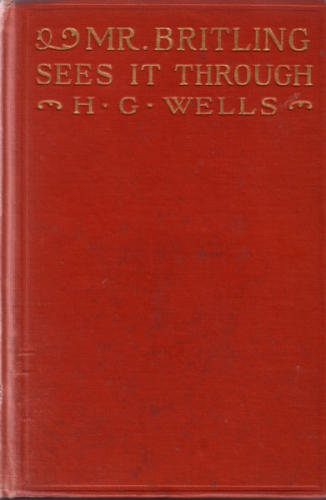
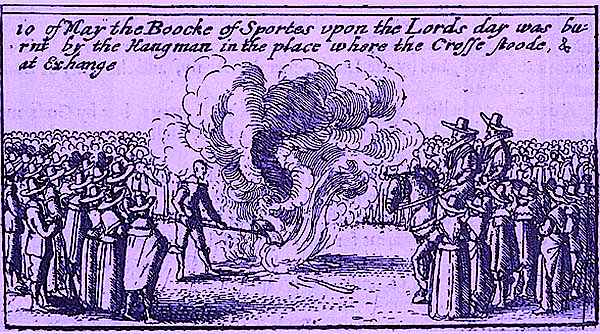
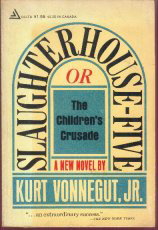 It would be easy to dismiss the incident as the kind of thing that doesn’t happen anymore, but SLAUGHTERHOUSE-FIVE has been one of the most consistently banned books in the world ever since. Reading it was forbidden in Levittown, New York in 1975, North Jackson, Ohio in 1979, and Lakeland, Florida in 1982. The Washington Park High School of Racine, Wisconsin was barred from buying it in 1984; by 1986, only students who had written parental permission could take it out of four Racine high school libraries.
It would be easy to dismiss the incident as the kind of thing that doesn’t happen anymore, but SLAUGHTERHOUSE-FIVE has been one of the most consistently banned books in the world ever since. Reading it was forbidden in Levittown, New York in 1975, North Jackson, Ohio in 1979, and Lakeland, Florida in 1982. The Washington Park High School of Racine, Wisconsin was barred from buying it in 1984; by 1986, only students who had written parental permission could take it out of four Racine high school libraries.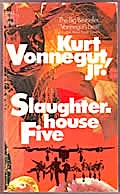 In 1987, its residence on the shelves of LaRue County High School in Kentucky was challenged, and it was banned outright in all the schools in Fitzgerald, Georgia. The following year, the school board in Baton Rouge, Louisiana was urged to remove the book from all public libraries on the grounds that it was vulgar and offensive; the year after that, parents tried to have it removed from a high school course on the modern novel because of offensive language and the portrayal of women in the book. (A book which, incidentally, contains only two substantial female characters — not that any of Vonnegut’s female characters are ever especially substantial — an ex-adult movie star kidnapped by aliens and the protagonist’s unattractive wife.)
In 1987, its residence on the shelves of LaRue County High School in Kentucky was challenged, and it was banned outright in all the schools in Fitzgerald, Georgia. The following year, the school board in Baton Rouge, Louisiana was urged to remove the book from all public libraries on the grounds that it was vulgar and offensive; the year after that, parents tried to have it removed from a high school course on the modern novel because of offensive language and the portrayal of women in the book. (A book which, incidentally, contains only two substantial female characters — not that any of Vonnegut’s female characters are ever especially substantial — an ex-adult movie star kidnapped by aliens and the protagonist’s unattractive wife.)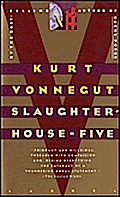 Seem like ancient history? Okay, try these on for size: in 1996, parents at the Round Rock Independent High School in Texas unsuccessfully tried to get the book removed on the grounds that it was too violent. In 1998, its presence as a summer reading option for incoming eleventh graders in Prince William County, Virginia raised quite a furor. In 2001, the book was removed from a tenth grade required reading list in Coventry, Rhode Island because a parent complained that it contained vulgar language, violent injury, and sexual content.
Seem like ancient history? Okay, try these on for size: in 1996, parents at the Round Rock Independent High School in Texas unsuccessfully tried to get the book removed on the grounds that it was too violent. In 1998, its presence as a summer reading option for incoming eleventh graders in Prince William County, Virginia raised quite a furor. In 2001, the book was removed from a tenth grade required reading list in Coventry, Rhode Island because a parent complained that it contained vulgar language, violent injury, and sexual content.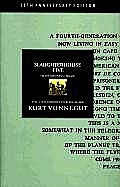 Still too long ago to make you a tad nervous? In 2007, a newly-elected school board member challenged SLAUGHTERHOUSE-FIVE and eight other books on the Arlington Heights, Illinois Northwest Suburban High School District 214′s reading list. Her objection arose, she said, not from having read any of the books herself, but from excerpts she’d read on the web. In the same year — that’s a scant two years ago, people — it was also under threat of ban in a high school in Howell, Michigan. That conflict escalated to the point that the following year, the county prosecutor actually had to rule on whether distributing the book was a criminal act.
Still too long ago to make you a tad nervous? In 2007, a newly-elected school board member challenged SLAUGHTERHOUSE-FIVE and eight other books on the Arlington Heights, Illinois Northwest Suburban High School District 214′s reading list. Her objection arose, she said, not from having read any of the books herself, but from excerpts she’d read on the web. In the same year — that’s a scant two years ago, people — it was also under threat of ban in a high school in Howell, Michigan. That conflict escalated to the point that the following year, the county prosecutor actually had to rule on whether distributing the book was a criminal act.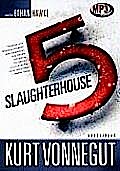 Why all the hoopla over whether high schoolers have free access to a book that, frankly, is far less sexually explicit than quite a bit of the YA currently on the market?
Why all the hoopla over whether high schoolers have free access to a book that, frankly, is far less sexually explicit than quite a bit of the YA currently on the market?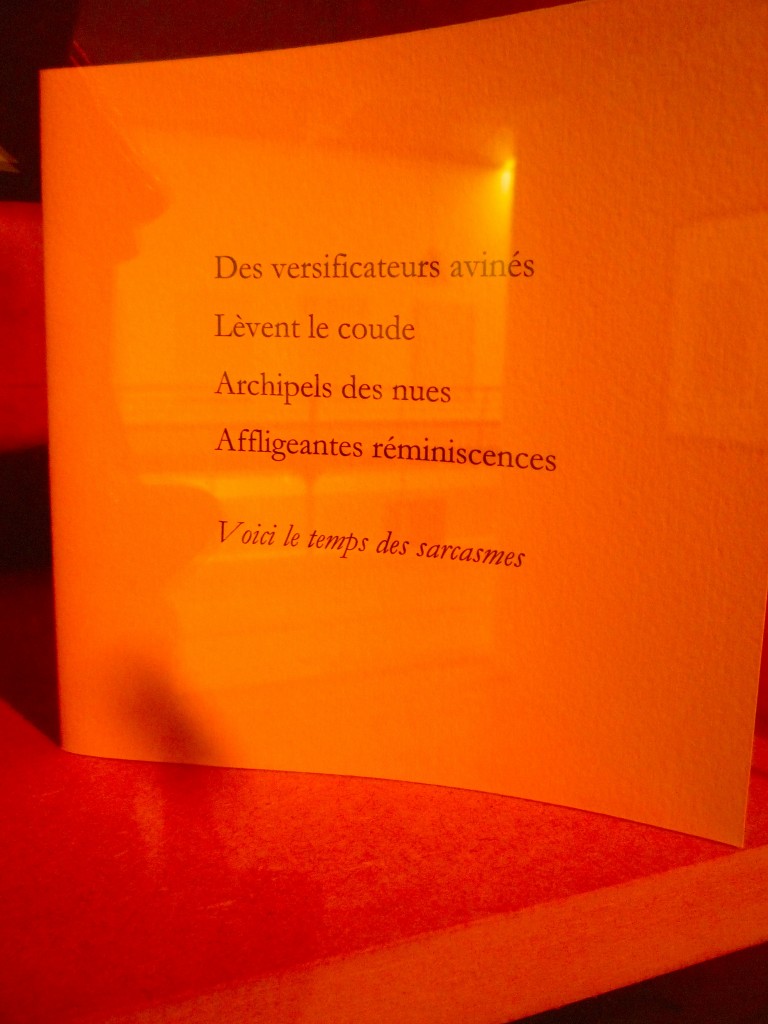






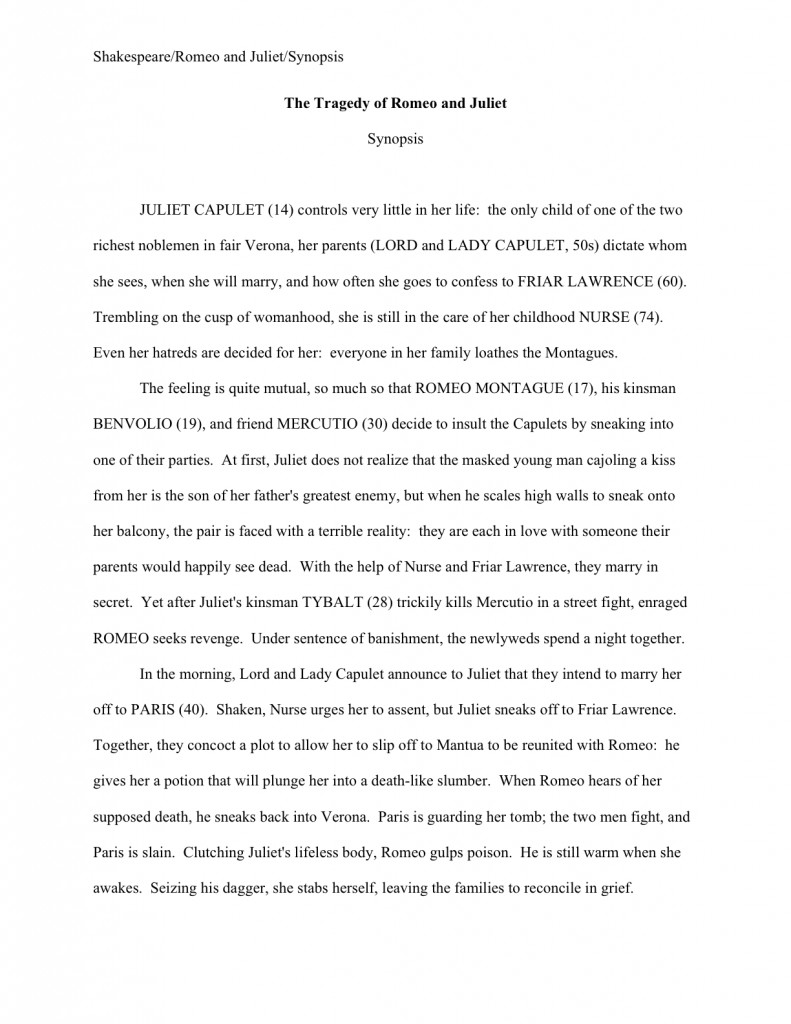
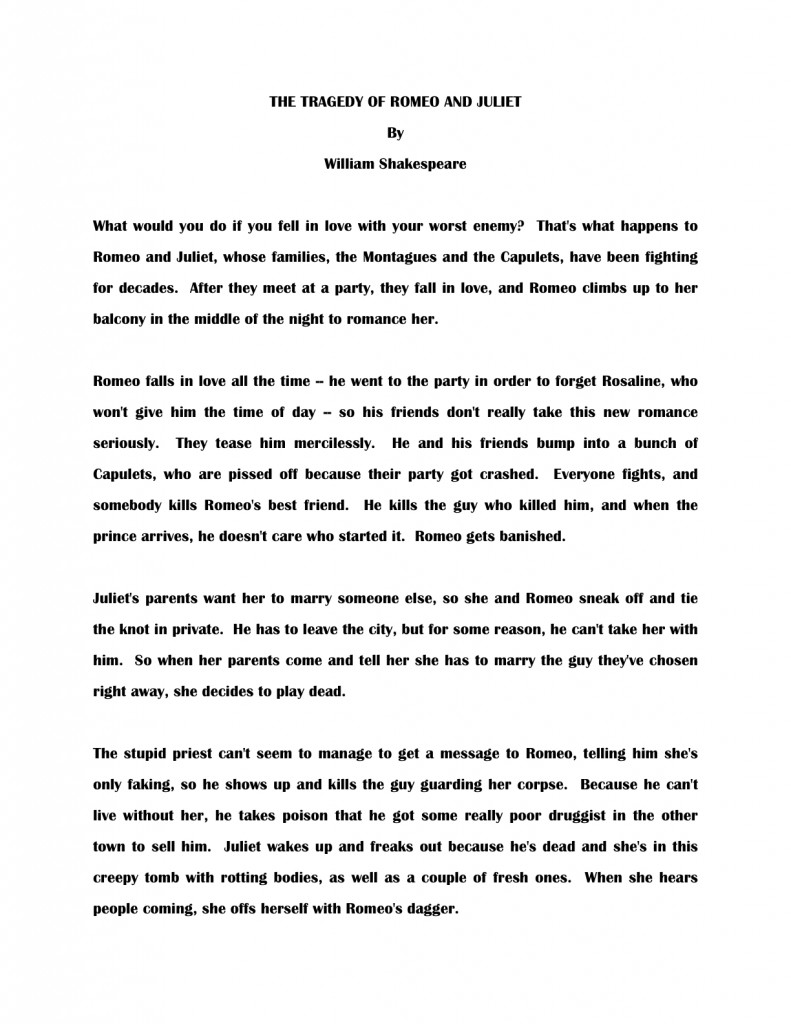
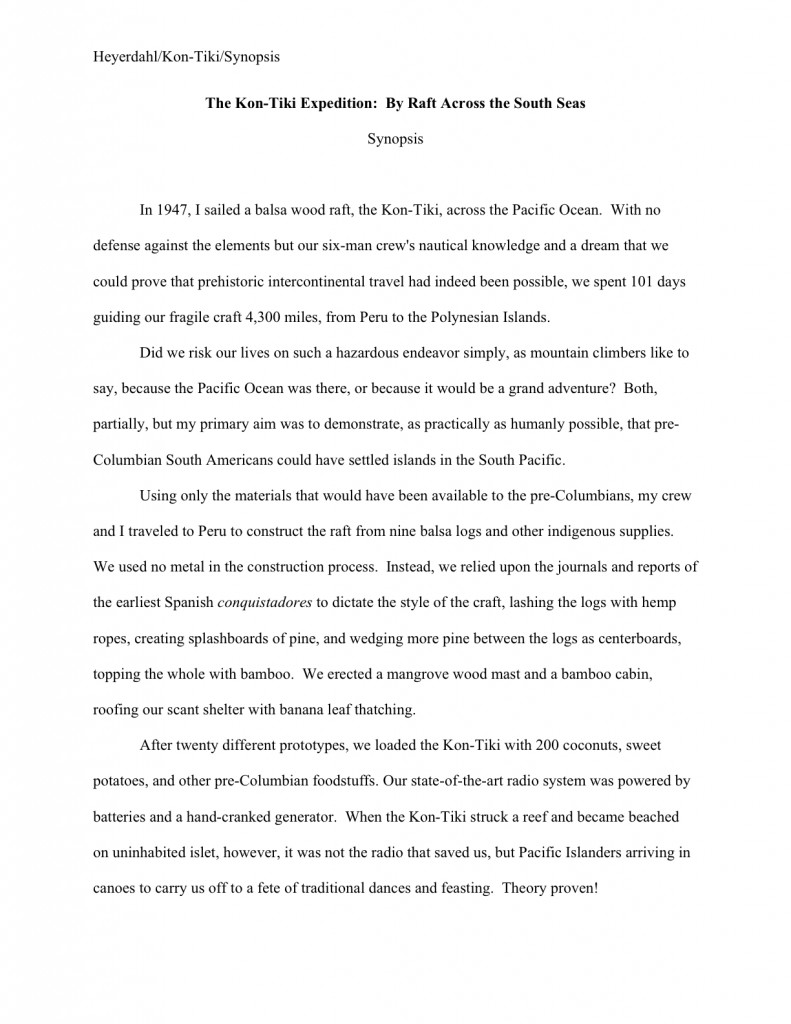
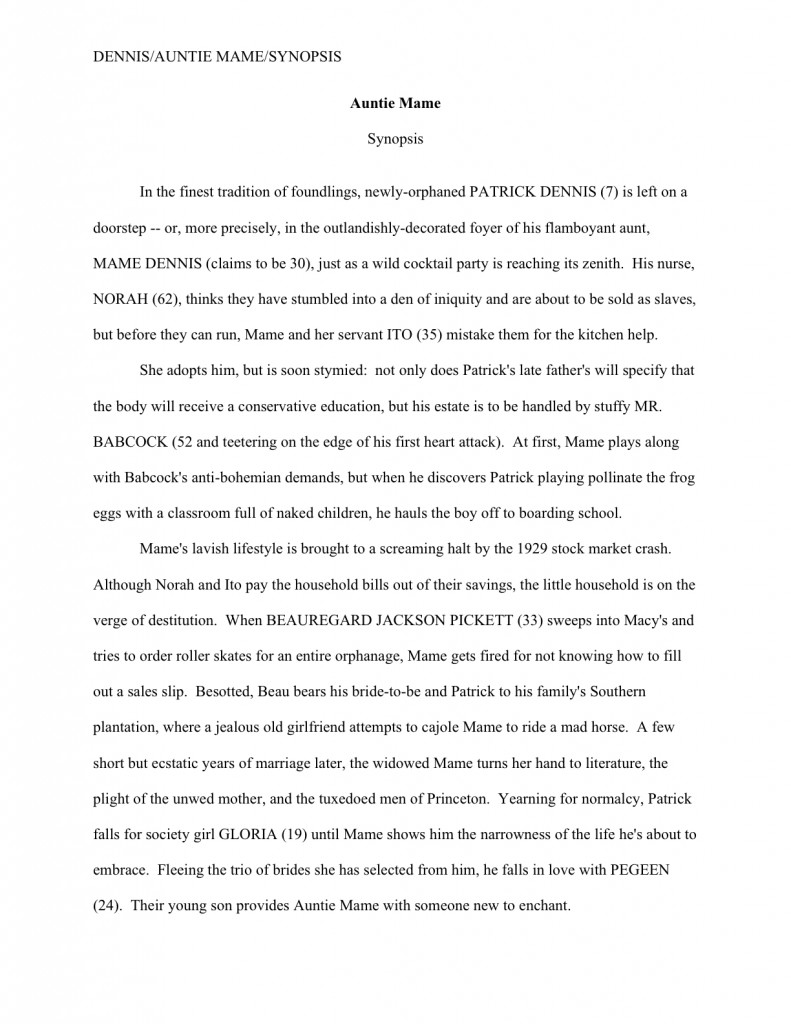




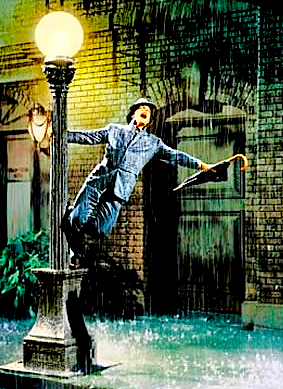
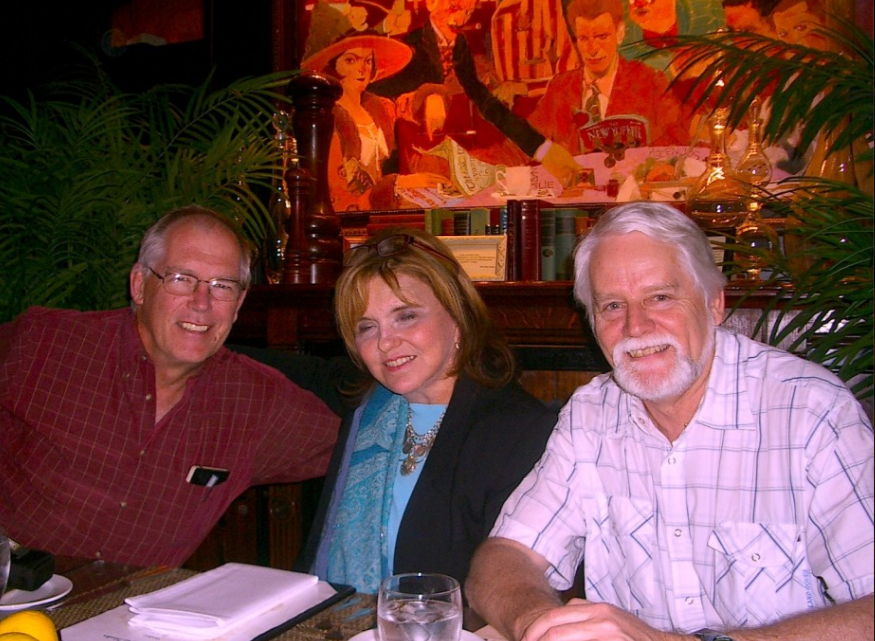
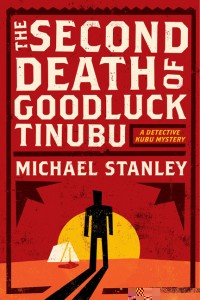
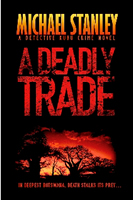 How can a man die twice?
How can a man die twice?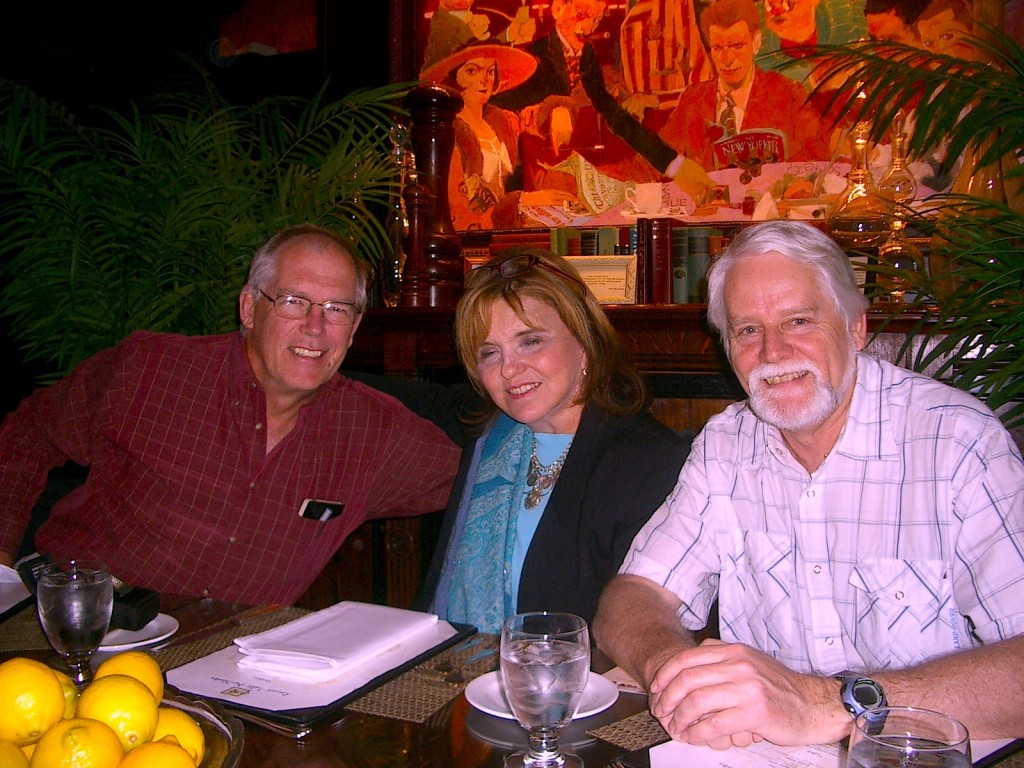
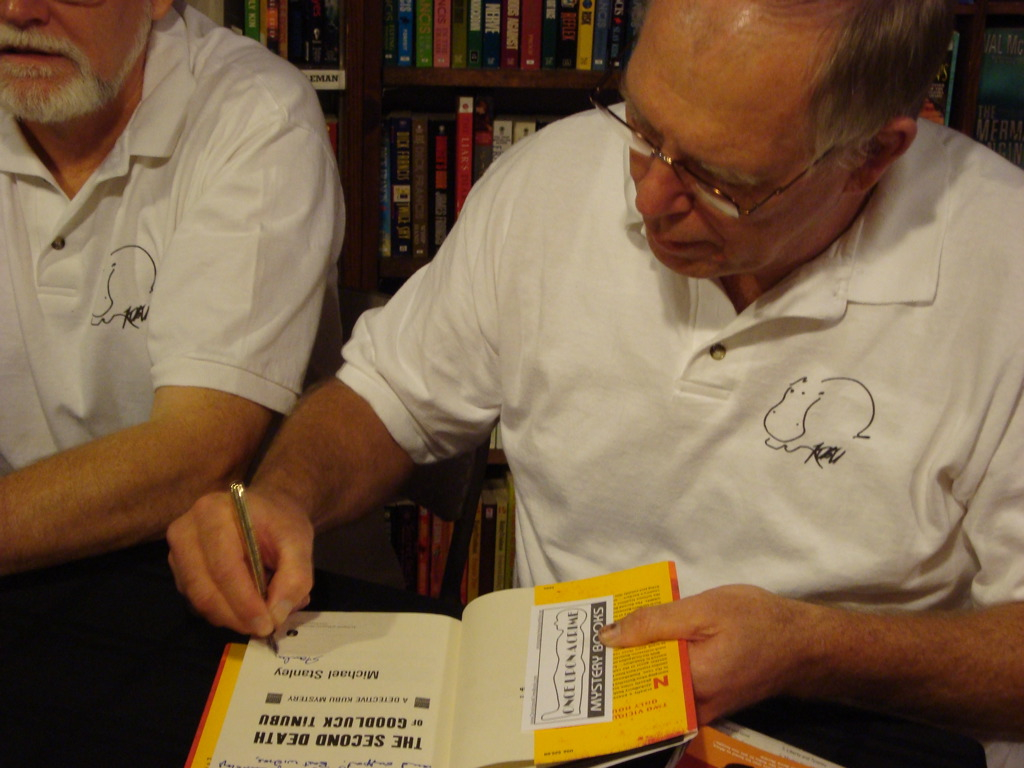
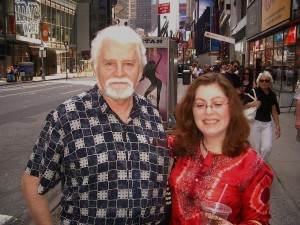
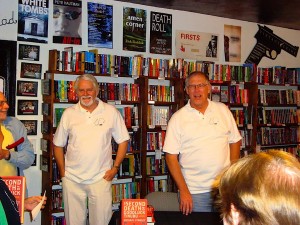
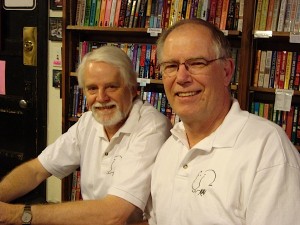
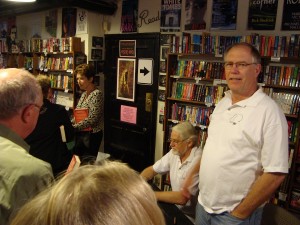
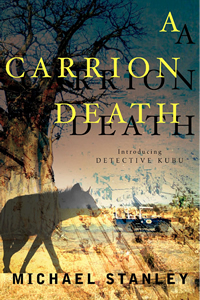
 Michael Stanley is the writing team of Michael Sears and Stanley Trollip.
Michael Stanley is the writing team of Michael Sears and Stanley Trollip. 















